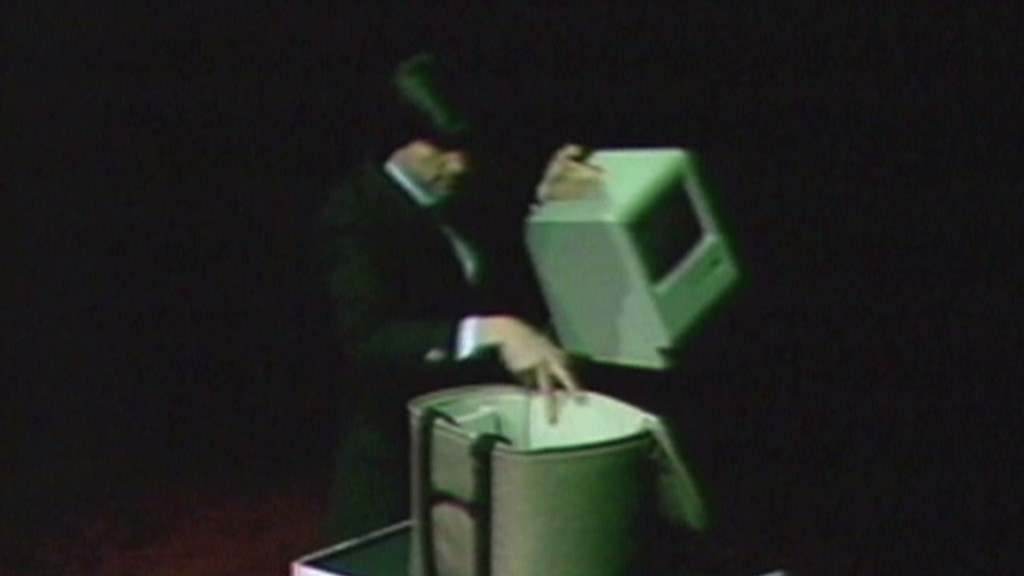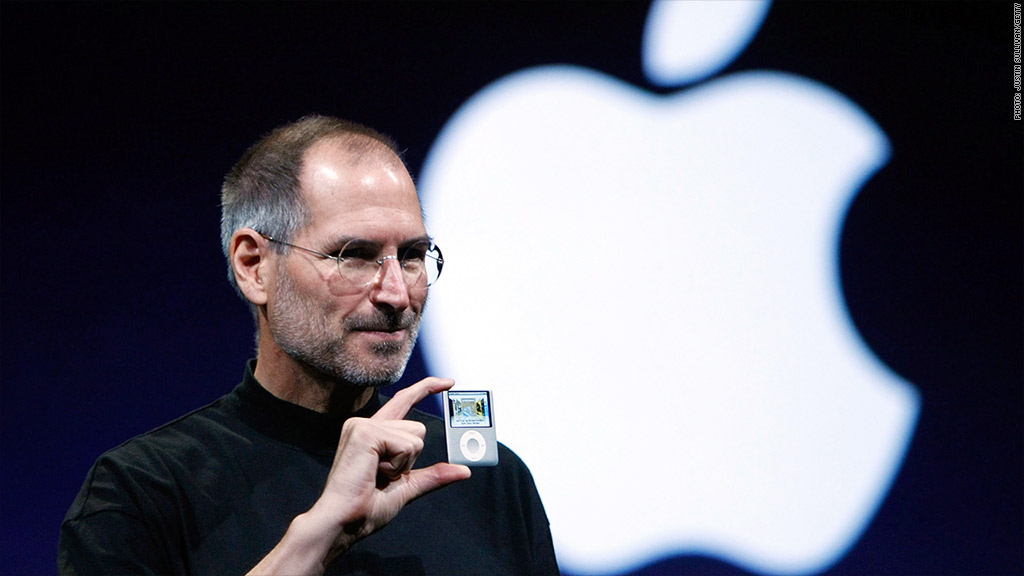
Between 2007 and 2009, Apple routinely deleted music off of some customers' iPods without telling them.
That's according to an attorney representing plaintiffs in a class-action trial taking place this week. A class of 8 million iPod owners argue that Apple abused its monopoly power in the music industry to force out competition.
When iPod customers downloaded music from iTunes rivals, Apple (AAPL) would force customers to reset their iPods, the attorney said. When the iPod was restored, the music they downloaded from competitors' music stores would no longer be on their iPods.
Apple claims that the measures were taken to protect its contracts with the record labels. In videotaped testimony taken six months before he died, Apple founder Steve Jobs said the company was "very scared" of being in noncompliance with the labels' terms, which stipulated that iTunes music needed Digital Rights Management protections -- copyright encryption that was not always available on other sites.
The plaintiffs are asking for at least $350 million dollars, because they contend Apple's tactics caused consumers to pay higher prices for iPods and music.

Related: What Steve Jobs said that has iPod owners up in arms
Eddy Cue, who heads Apple's Internet services division, testified Thursday that Apple was trying to keep the digital storefront and the iPod secure from hackers.
"Our number one competitor in life is privacy, " Cue said while discussing the need to keep iTunes secure. "I said it's literally a blank check."
On Friday the jury is expected to see the video testimony from Steve Jobs.
Related: 10 best Steve Jobs emails
But the case may be in jeopardy of proceeding.
The plaintiffs attorneys have encountered a major hiccup in their $350 million class action lawsuit against Apple. At issue is whether the two plaintiffs representing the class of 8 million iPod purchasers from 2006-2009 are valid plaintiffs.
The plaintiffs lawyers conceded today that one of their plaintiffs has been unable to produce an iPod during the time frame in question and the second plaintiff may not have a valid iPod either. Apple investigated the iPod and found it not to be relevant during the class period.
Accordingly, the judge said she is concerned that there is no longer a valid plaintiff. If that's true and it turns out there is no valid plaintiff, Apple lawyers question how the trial would be able to proceed.
It's a very fluid situation and things could could change, but attorneys representing Apple are going to be filing a Rule 50 motion Thursday, essentially arguing that the case be thrown out. It's now up to the plaintiffs' lawyers to prove they have a valid plaintiff.
Even so, things are still slated to proceed as normal Friday, including the playing of the Steve Jobs video deposition. However, things could quickly change given this new development.

